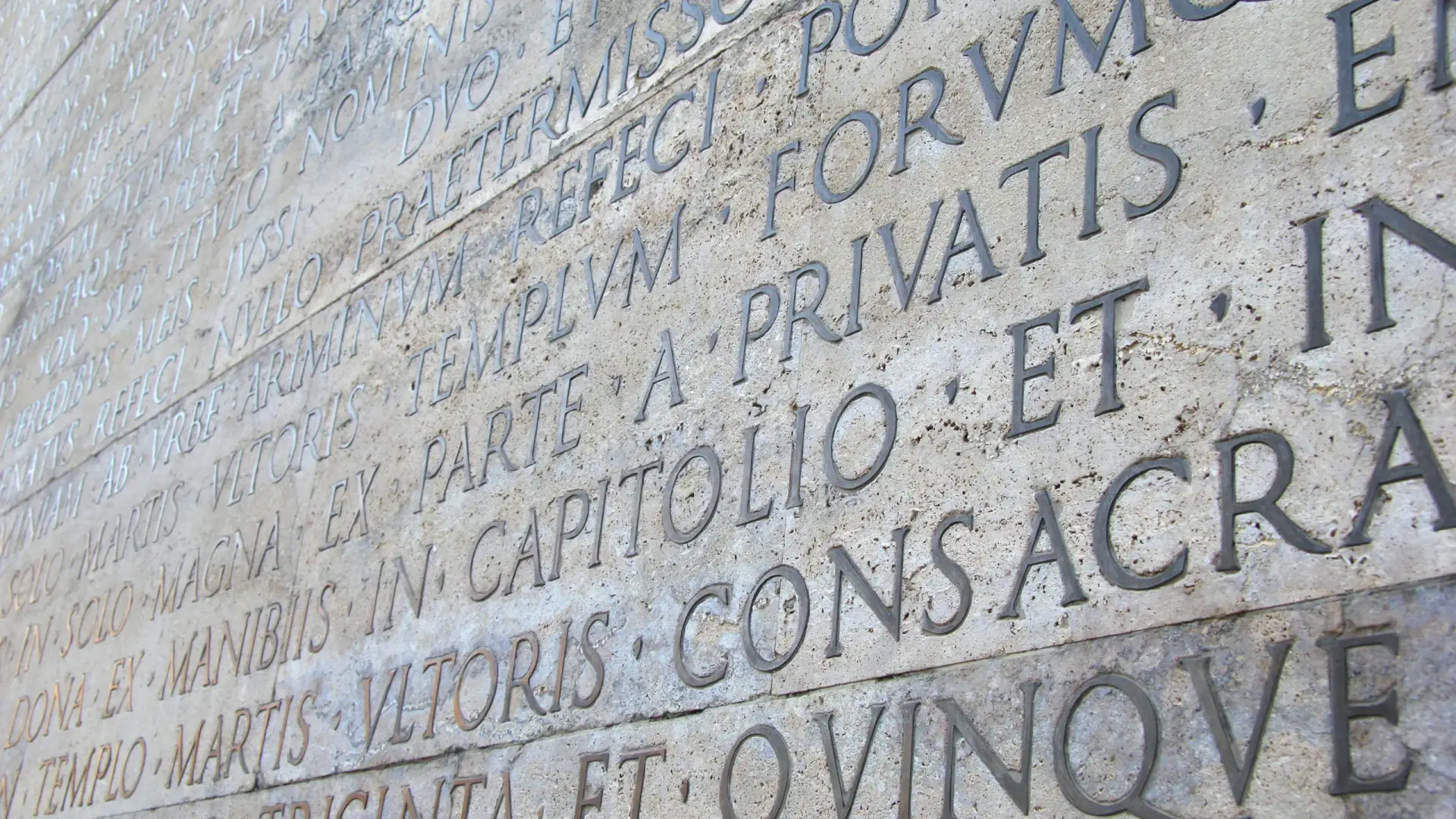Modern Italian is a Romance language – that is, it derives much of its structure and vocabulary from Latin, the official language of Ancient Rome. The strong romanisation of the western part of the empire has made sure that other modern languages beside Italian also derive from Latin: Spanish, French, Portuguese and, curiously, Romanian.
Much of the modern Italian vocabulary thus derives from Latin, with many Latin words used in Italian today that remain unchanged. This especially characterises specialist vocabulary, such as terminology in the medical and legal fields, for example. Much of it has reached modern Italian via medieval monks and early modern scholars who used Latin as their lingua franca (i.e., the main language of communication and writing). However, some common expressions have also been preserved in modern spoken Italian, quite close to their original Latin meaning.
This post will explore five examples of Latin words and expressions which are used and still matter in written and spoken Italian today. They tend to convey meanings which cannot be expressed otherwise – thus it is fundamental to understand them, as there is sometime no other way to express the same concept!
Why Latin Still Matters When Learning Italian
Because Italian derives from Latin, knowing the language of Ancient Rome can be of great help when studying its modern offspring and understanding Italian language history. Much of the grammar and the vocabulary are very similar if, at times, identical. For instance, words like the Latin aqua and familia are instantly recognisable as the modern Italian ‘acqua’ (water) and ‘famiglia’ (family). Other words, on the other hand, are exactly the same: terra (earth/land), luna (moon) and amare (to love). But this is nothing; there are literally hundreds of Latin words used in Italian today!
Grammar too shows similarities: for instance, both languages possess verb ‘families’ which behave in a pretty identical way. This means that the Italian verb amo (I love), just to take one, is conjugated in an almost identical way to its Latin ancestor. Therefore, knowing a bit of Latin can be of crucial importance to ease your journey in the Italian language!
It is not only languages which have shaped each other, however. As languages are carriers of ideas, Roman influence still plays a role in many aspects of contemporary Italian language, culture and society. Dinner is, after all, still the most important meal of the day; families still tend to be structured in a patriarchal way, at times; and much more.
As I am well aware of this factor, my lessons strive to bring language and cultural history together, in order to convey a richer and more encompassing learning experience which goes well beyond the simple act of conversation.
But let’s for now explore 5 Latin expressions still used in Italian today and see how much they differ (or not!) from their original meaning.
5 Fascinating Latin Words Still Used in Italian Today
Carpe Diem: “Seize the day”
This famous quote comes from one of Horace’s poems. Horace lived during the reign of emperor Augustus, in the latter half of the 1st century BCE. In Latin, the expression was part of a longer sentence: “carpe diem, quam minimum credula postero” – which literally translates as “seize the day, being the least hopeful/confident about the future”.
As in Latin, in Italian the expression ‘carpe diem’ invites the listener to make the most of the present moment, since the future is uncertain. It is used quite often both in the written and in the spoken language, but in a more casual context than a formal one.
Example from a written conversation in a novel: “come dicevano gli antichi, carpe diem; che cosa aspetti, perció? Vai e divertiti!”
Translation: “As the ancients used to say, carpe diem; what are you waiting for, then? Go and enjoy yourself!”
This is such a great expression to teach, not only for its connection to the Roman heritage of Italian, but also for the great philosophical value attached to it: we should all remember more often to truly live more in the present and to grab its opportunities!
Viceversa: “The other way around”
In Latin, the adverb “vice versa” (or “versa vice”) literally translates as “after/since the event has changed”. In English, we tend to translate it as “the other way around”. It is quite often found both in Latin literature and in ancient Roman formal, legal texts.
Modern Italian has maintained this original meaning, with ‘viceversa’ (one word in Italian, and not two separate ones like in English and Latin) meaning “on the contrary/conversely”. However, the expression is also sometime used to mean a reciprocal action.
Viceversa is widely used in Italian today, both in the written and in the spoken language.
Example with the meaning “on the contrary/conversely”: “Devi prima mettere l’acqua e poi la pasta, e non viceversa.”
Translation: “You have to put in the water first, then the pasta, not vice versa.”
Example with a reciprocal meaning: “In caso di bisogno, i figli devono aiutare i genitori, e viceversa.”
Translation: “When needed, children should help their parents and vice versa.”
Alter ego: “The other self”
The Latin orator and politician Cicero (1st century BCE) coined this term in his writings, meaning by it a ‘second self’ in the guise of a trusted friend.
In modern Italian, the meaning of this expression depends on the context in which it is used. In psychology, an alter ego delineates a second personality existing within one individual – as in the famous case of Louis Stevenson’s ‘Doctor Jekyll and Mr Hyde’. From a juridical point of view, however, an alter ego is a person’s substitute, authorised to act on his/her behalf.
This expression is widely used today, especially in writing.
Example: “Mister Hyde è l’alter ego del dottor Jekyll.”
Translation: “Mr Hyde is Dr Jekyll’s alter ego.”
Qui(d) pro quo: “Something for something”
Quite interestingly, this Latin expression reached the Italian language via French (another Latin-derived tongue). In the late Middle Ages, this expression was commonly used in pharmacies: it delineated the substitution of a particular medication with a similar one, in case of dearth of the former.
In modern Italian, both formal and causal, ‘qui (more commonly than quid) pro quo’ is used to refer to a misunderstanding. In English, on the contrary, the expression has a more neutral tone, meaning something like ‘exchange’.
The expression is found more in the written than in the spoken language today.
Example: “Non c’è nessun qui pro quo; hai semplicemente sbagliato.”
Translation: “There’s no quid pro quo here; you have simply made a mistake.”
This is a funny expression to teach, as it usually baffles my native English students who do not know about the slightly negative connotation it has in Italian!
A priori: “knowledge independent of experience”
The expression ‘a priori’ was first used by ancient authors who commented on the work of the Greek philosopher Aristotle (4th century BCE). As befitting its original context, ‘a priori’ has a very philosophical meaning: it delineates a form of knowledge which can be acquired from existing premises. In other words, it refers to a deductive process. Its opposite, ‘a posteriori’, instead points out to knowledge gained via induction – that is, knowledge which is attained only through experience.
Modern Italian preserves this original meaning. However, the expression is also widely used in the spoken language and in informal settings. It is also common in subjects like mathematics, logic and law to delineate initial premises.
Example from formal writing: “Assumendo a priori che tutti gli uomini siano mortali, possiamo dedurre che ogni uomo morirà un giorno.”
Translation: “Assuming a priori that every man is mortal, we can deduce that everyone will die some day.”
Example from informal speech: “Ho detto a Giacomo che, a priori, non ci sarei andata alla festa con lui.”
Translation: “I told Giacomo that, a priori, I would have not gone to the party with him.”
Ready to Learn Italian with Cultural & Historical Insight?
As you may have noticed by now, the Latin roots of modern Italian are still quite strong and alive. Make thus sure to notice Latin-based words when you hear or study Italian, as they can also provide you with a very interesting insight into some cultural aspects of the language!
Have you found these Latin expressions interesting? Do you want to know more of them and see how they are used in modern-day Italian? You can check my language courses page to learn how Latin shaped Italian!
Or are you more interested to know how Latin and the Roman world shaped the culture of contemporary Italy? Are you fascinated by the interaction between Ancient Rome and the Italian language or are interested in some Italian language history? Explore my cultural courses or Contact Us to book a trial lesson to begin your journey in Italy’s rich past!





